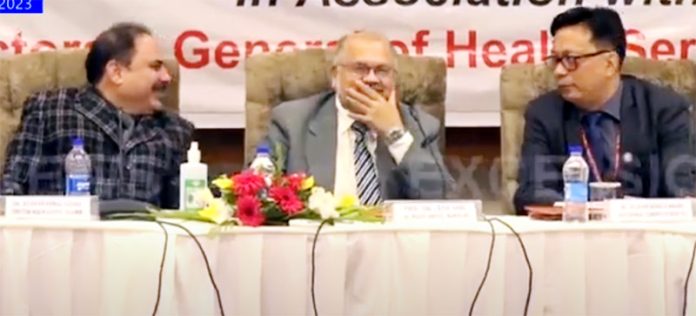Excelsior Correspondent
Srinagar, Dec 20: In a first, the National-level review and planning meeting for the upcoming Amarnath Yatra-2024 was held today at SKICC.
The meeting was attended by the Director General of Health Services, India, and other top officials of the administration.
The members who attended the meeting aimed to gather inputs and suggestions from the concerned departments as well as the agencies involved in the conduct of the pilgrimage, focusing on how to make the Yatra seamless.
Dr. Atul Goel, Director General of Health Services (DGHS), Union Ministry of Health and Family Welfare, Government of India, said that the meeting aimed to address any shortcomings, if any, observed during the previous yatra.
“This is the first meeting in this regard; otherwise, we used to do it in Delhi. If there were shortcomings, the meeting discussed how to address the same,” he said.
“The focus will be to ensure how to save human lives and provide the necessary medical facilities. Providing medical facilities and saving more lives are both difficult, but the focus is to ensure that both targets are achieved,” he added.
The meeting, in addition to the concerned officials from J&K, also witnessed the participation of Directors and Principals from various UTs and States across the country who deliberated over the plan for conducting the Yatra effectively.
“This meeting usually used to be held online, but this is the first time it has happened here. Its aim was to ensure better facilities for the yatris and chalk out the necessary plan to make the Yatra seamless compared to the previous year,” said Dr. Mushtaq Ahmad Rather, Director Health Services, Kashmir.
During the meeting, the concerned people from the Health Department were informed about the terrain and conditions and the need for training the manpower accordingly so that they do not face issues.
“There are issues that people face during the Yatra; we aim to ensure that the necessary measures are taken and the information reaches the grassroots level so that pilgrims or the staff deputed from various parts of the country do not face issues,” Dr. Rather said.


